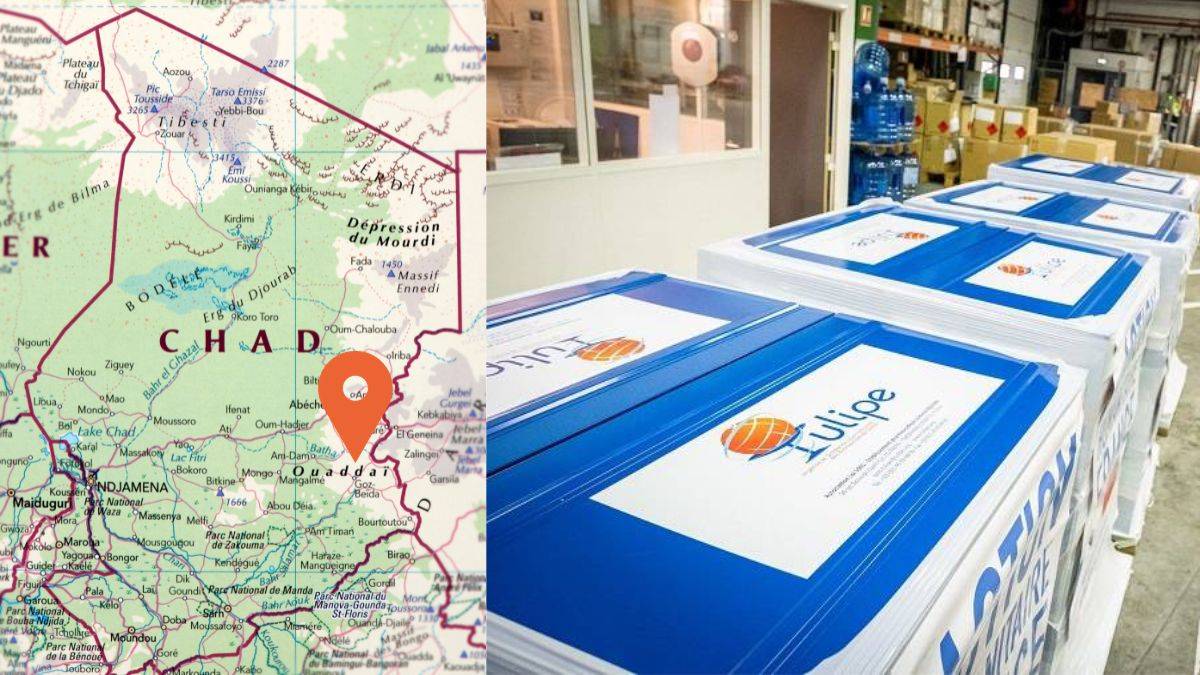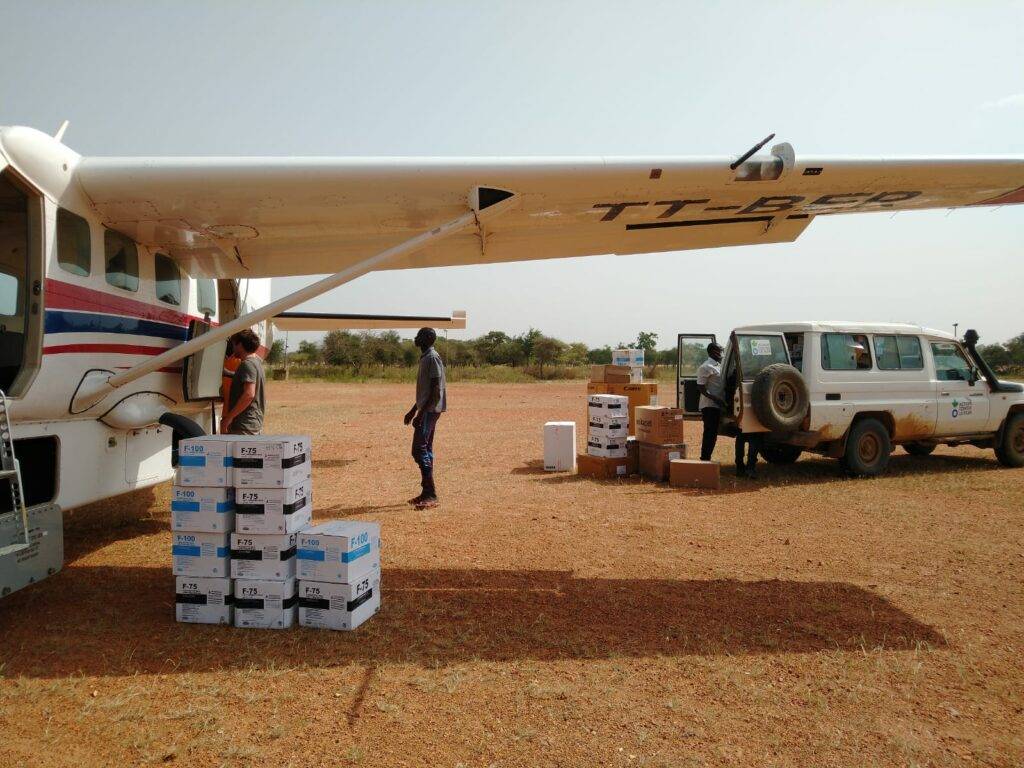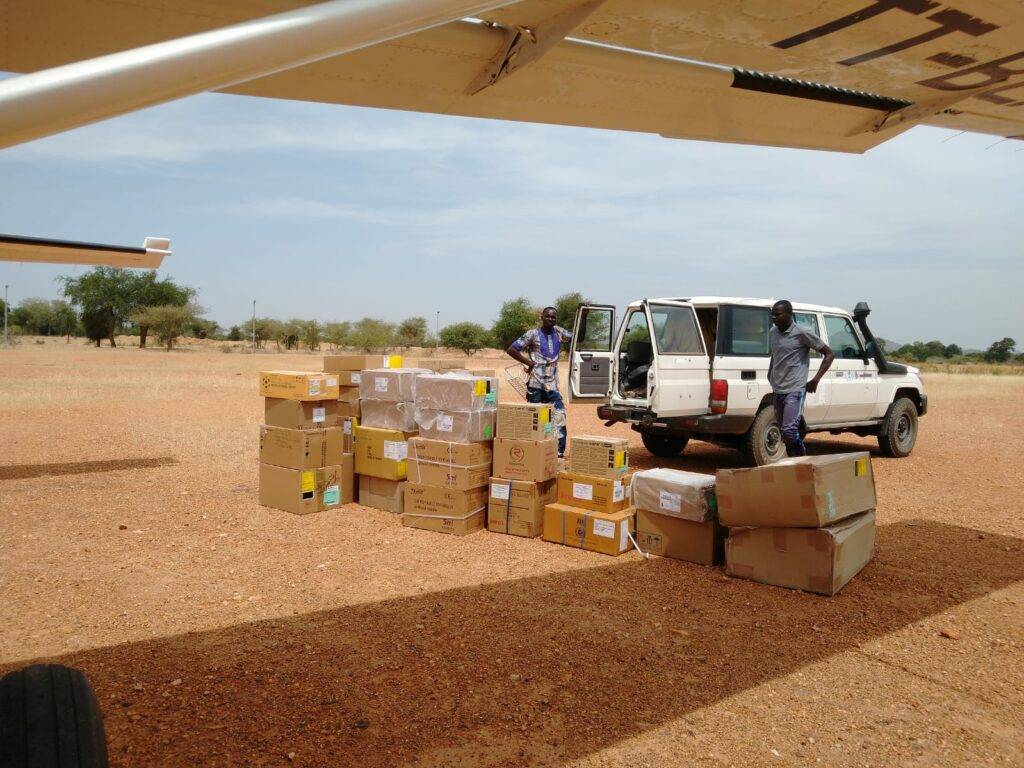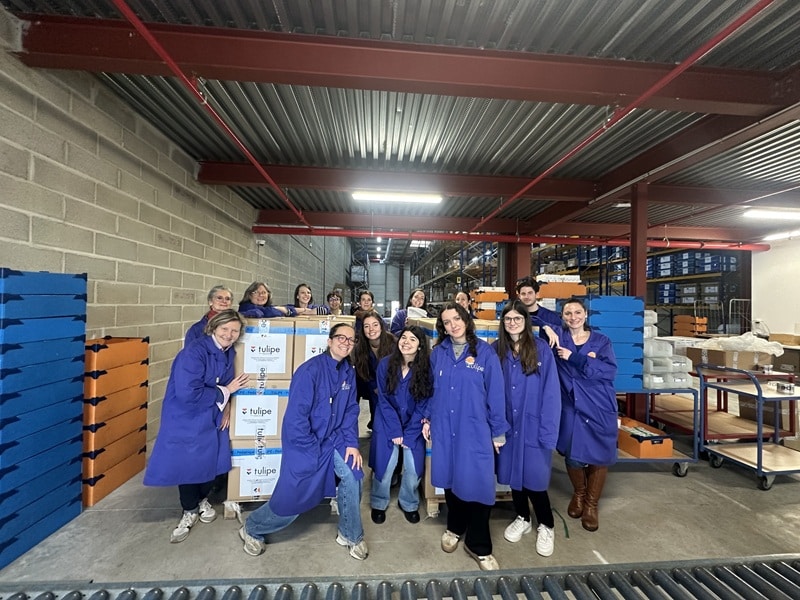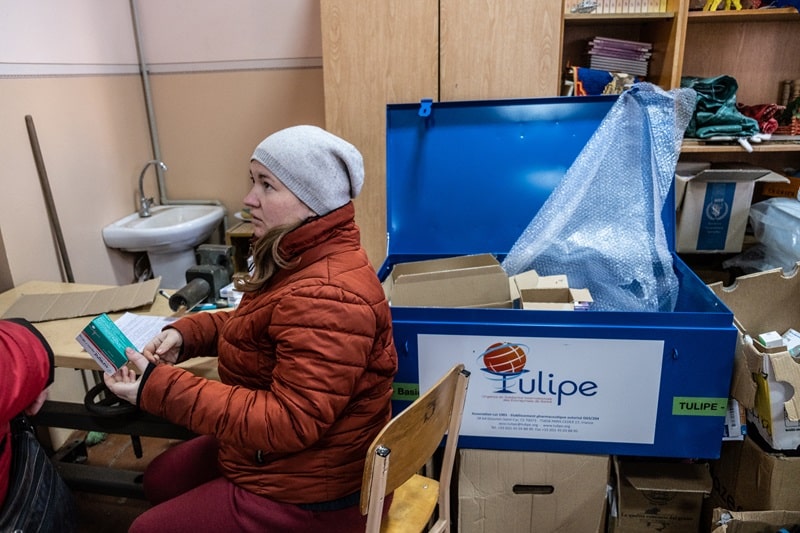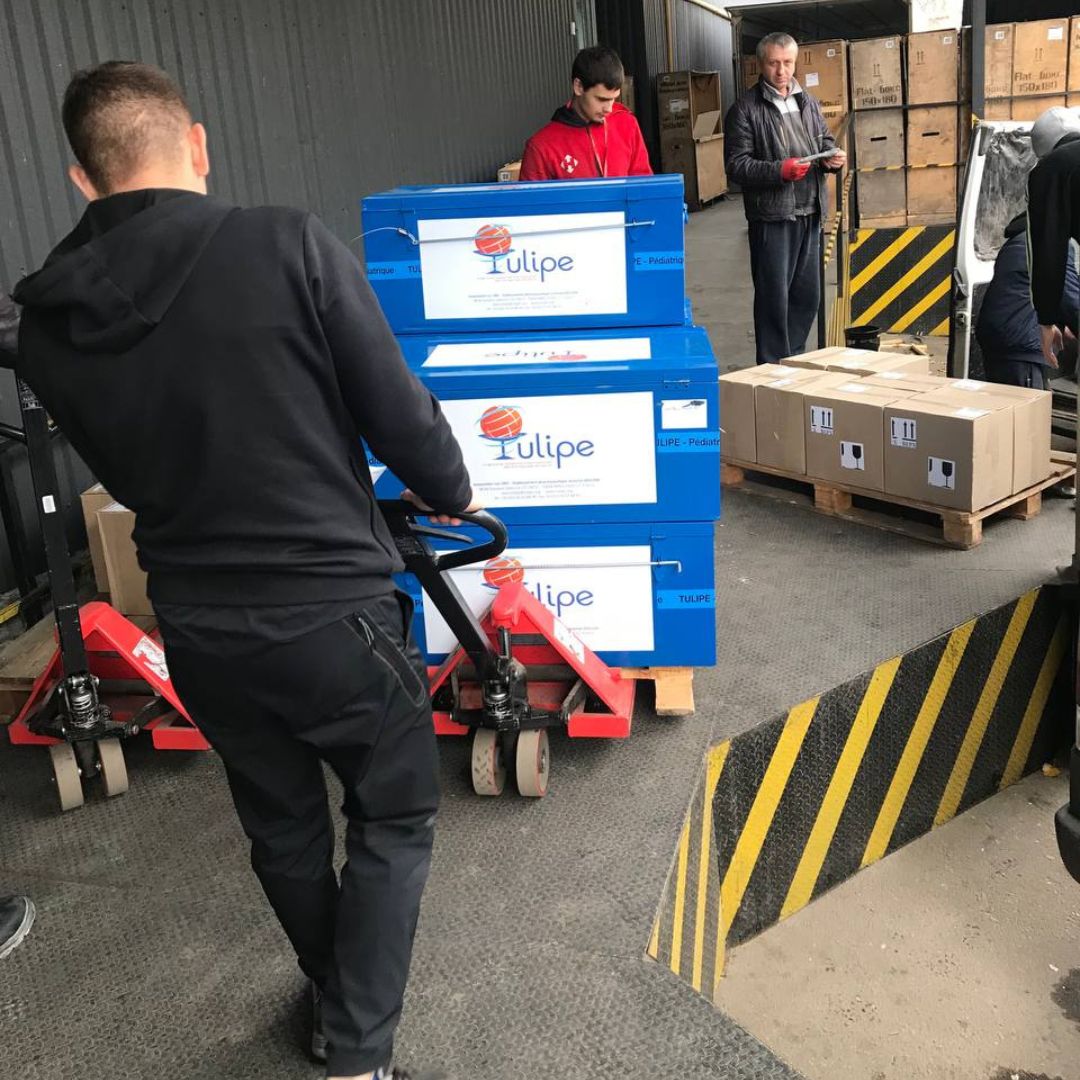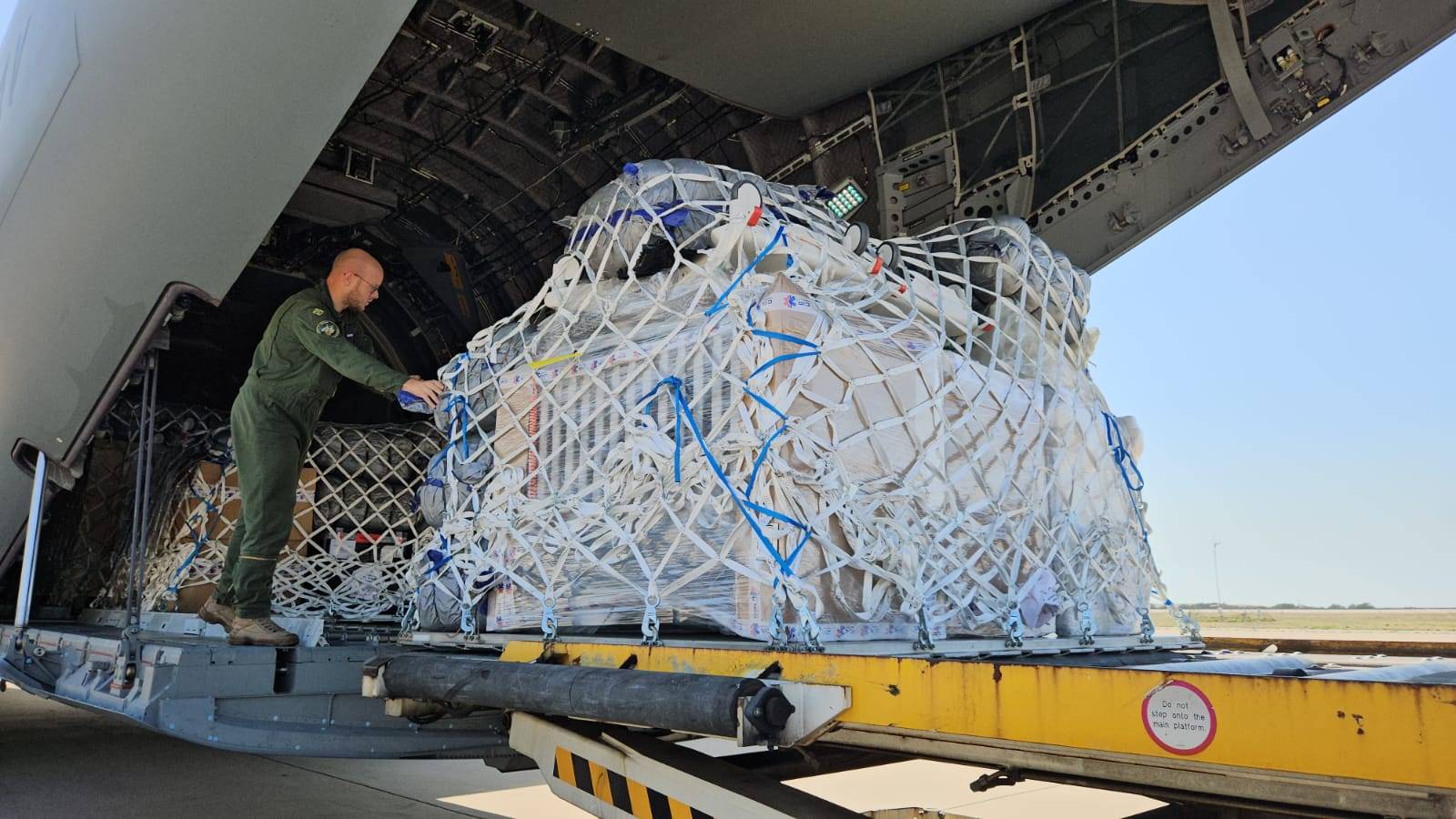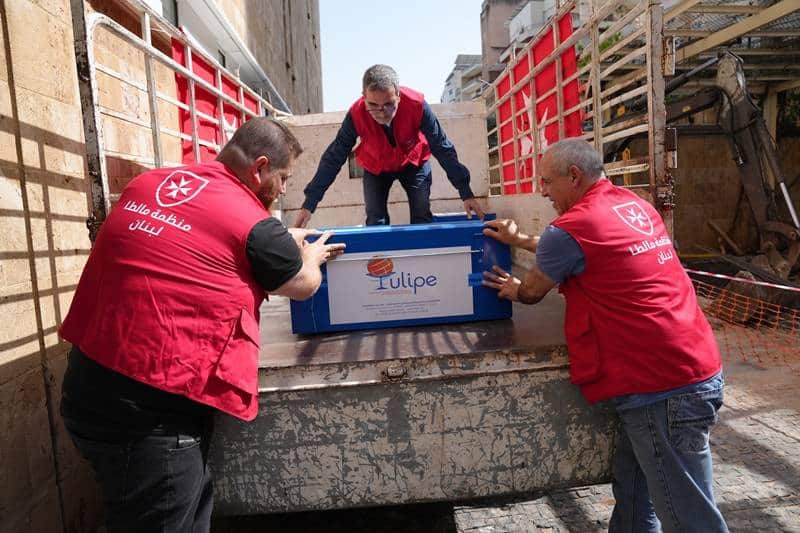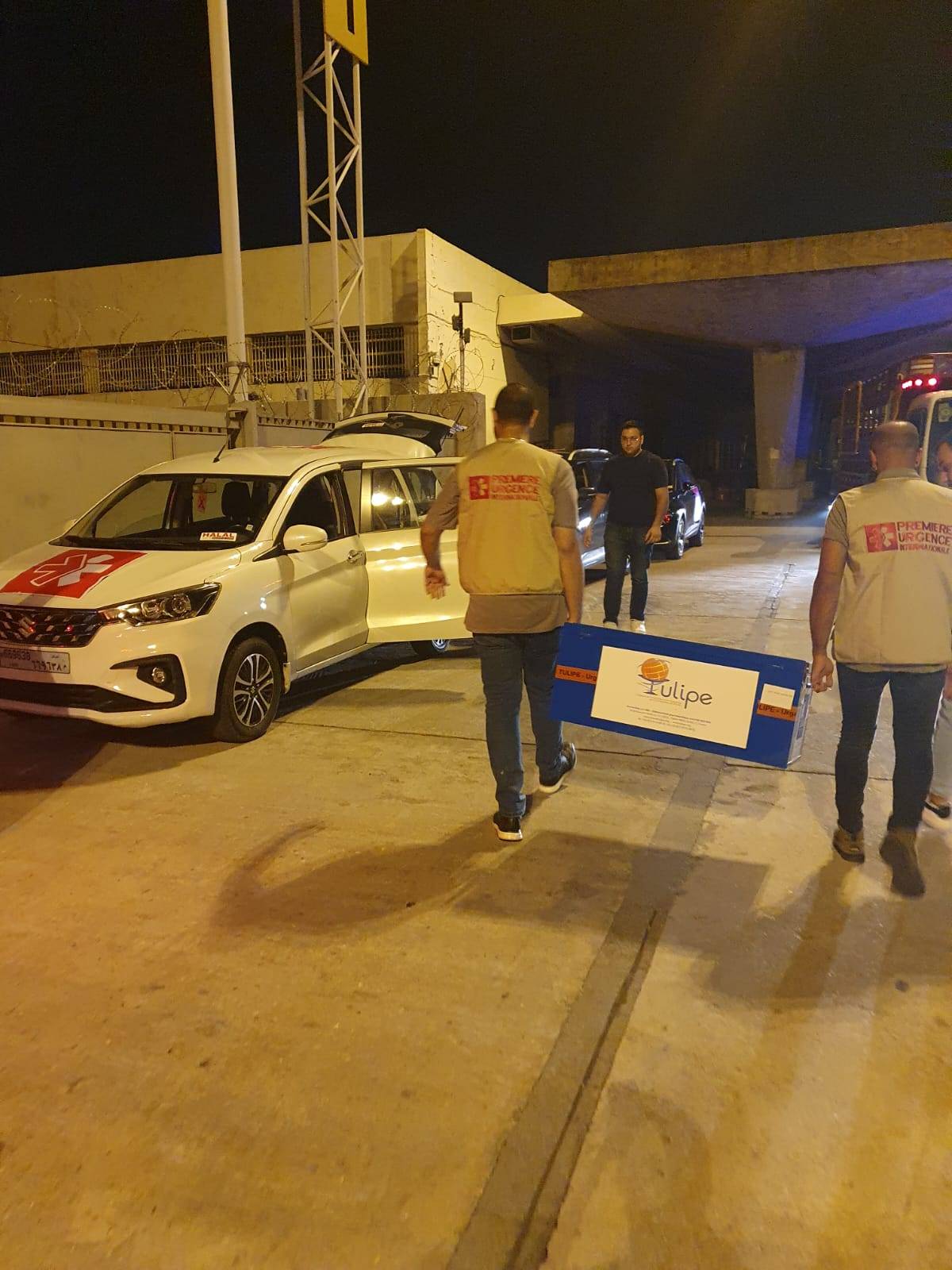The Tulipe association has donated 14,000 treatments (1.6 tonnes of health products) to its partner, the NGO Action contre la Faim (ACF), which will distribute them to refugee sites arriving in Chad. They were transported to Chad at the beginning of October. Since the start of the conflict in Sudan, more than 418,126 refugees have fled from Sudan (mainly from West Darfur) to Chad, in the eastern provinces of Ouaddai, Sila and Wadi Fira, because of the fighting.
The delivery of health products donated by Tulipe and its partner health companies “will make it possible to supplement the need for medicines to treat medical and nutritional emergencies at refugee sites, in camps, in health centres and through ACF mobile clinics. Thanks to these kits, reproductive health activities such as pre/post natal consultations and deliveries, curative consultations for children under the age of 5 and the systematic treatment of cases of acute malnutrition will be provided to refugee populations as quickly as possible”, explains ACF, which has been working in Chad since 1982.
Action contre la Faim au Tchad – October 2023
600,000 refugees could arrive by the end of 2023
On the ground, the humanitarian situation continues to deteriorate. The number of people arriving in Chad has been rising steadily since 26 May, and has accelerated further since June. ” The vast majority of these refugees and returnees are women and children, who are still living in precarious conditions near the Sudanese border, where the security situation is unpredictable”, notes the NGO ACF. Given the prevailing instability, persistent armed violence and inter-community clashes in Sudan, the humanitarian community and the Chadian government anticipate that at least 600,000 refugees could arrive by the end of 2023.
Action contre la Faim au Tchad – October 2023
A town engulfed by tents and shelters
The department of Adré in the province of Ouaddai is home to more than 234,426 refugees. That’s four times more than its usual population. The town is engulfed in tents and makeshift shelters, and basic services are completely overwhelmed, despite the humanitarian response. The situation is catastrophic on every front: health, nutrition, shelter, access to water and sanitation, mental health, epidemic risk and food safety. Acute respiratory infections, watery diarrhoea and malaria remain the three most frequent pathologies. A rate of 28% of global acute malnutrition was detected among children under the age of five when the first refugees arrived.
A clinic set up by Action contre la Faim
To support the health services in Adré, alongside other organisations, Action contre la Faim has set up a clinic at the Lycée site and a therapeutic nutritional unit at the town’s hospital to treat children suffering from severe acute malnutrition without and with medical complications. In addition to treatment, awareness-raising campaigns on good hygiene and care practices are being carried out in the communities, and community relays have been trained to detect and screen for malnutrition. Aminata Zoubeirou Mahaman, head of the Nutrition and Health programme at Action contre la Faim, is concerned: “The children who come to us at the therapeutic nutrition unit are really in a critical state. Some of them are completely exhausted, having travelled long distances on their mothers’ backs to seek refuge. At the same time, food prices are rising, which can lead to malnutrition not only among the refugee children who arrive, but also among the local population.
Supporting health facilities
Since free health care is not available due to a lack of essential medicines and human resources, Action contre la Faim is proposing to “support health facilities to increase coverage of essential preventive and curative health and nutrition interventions for refugees and host populations, either through mobile clinics or health posts in refugee reception areas, and/or build the capacity of existing health facilities to deal with the shock situation in eastern Chad, particularly along the Sudanese border in IDP sites not covered by other partners in the provinces of Sila and Ouaddai”.
